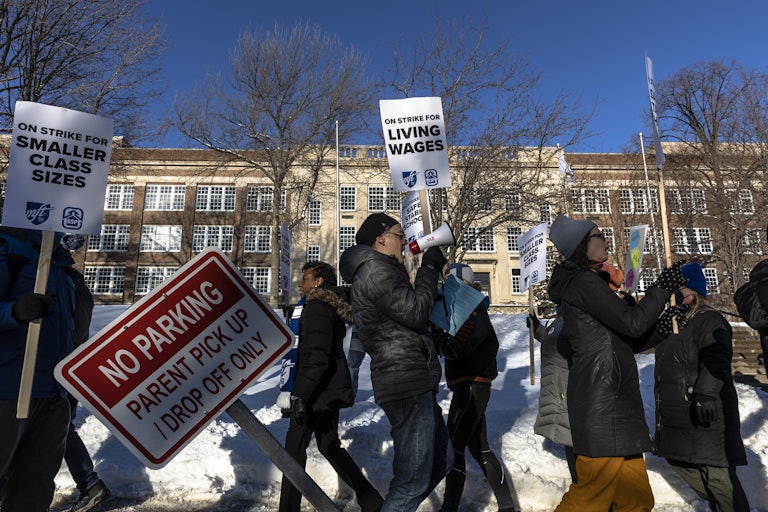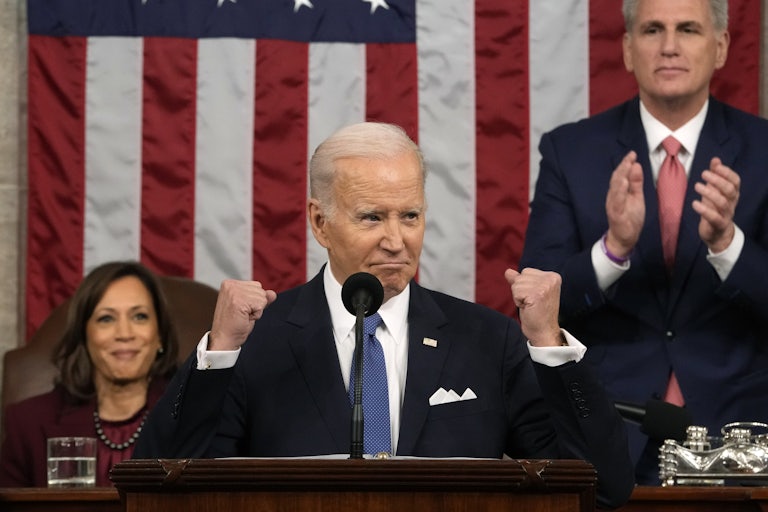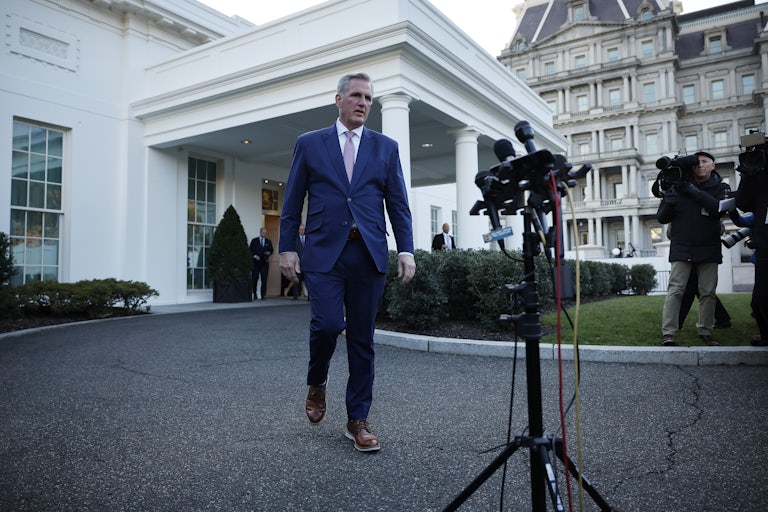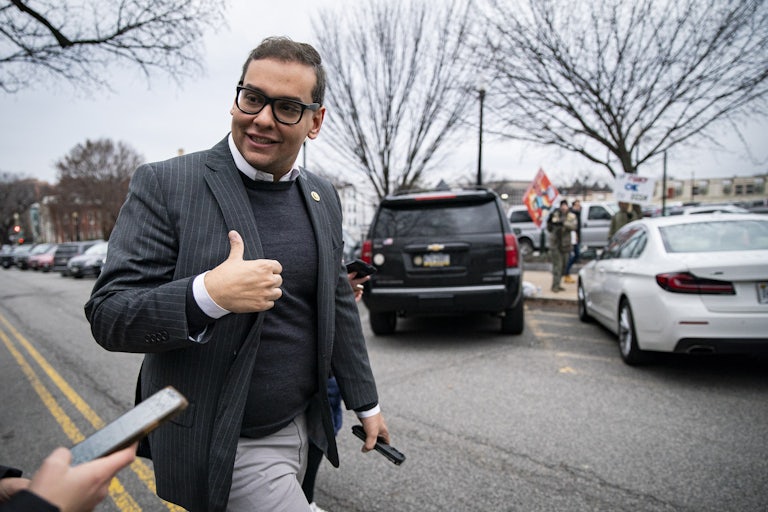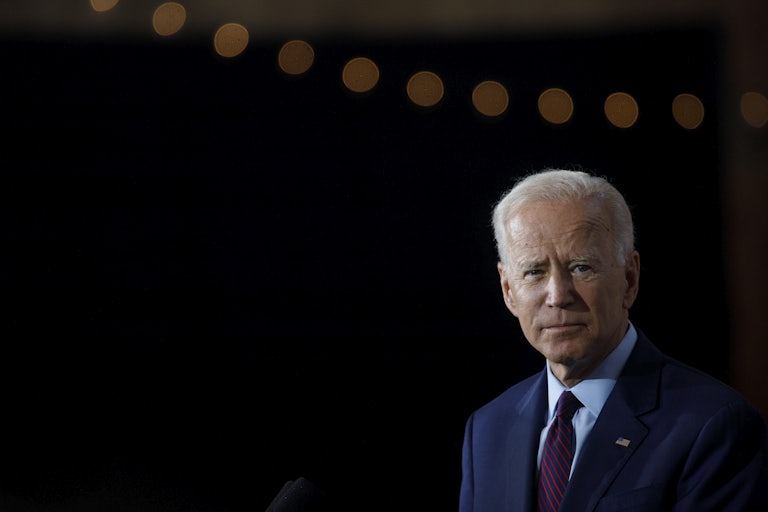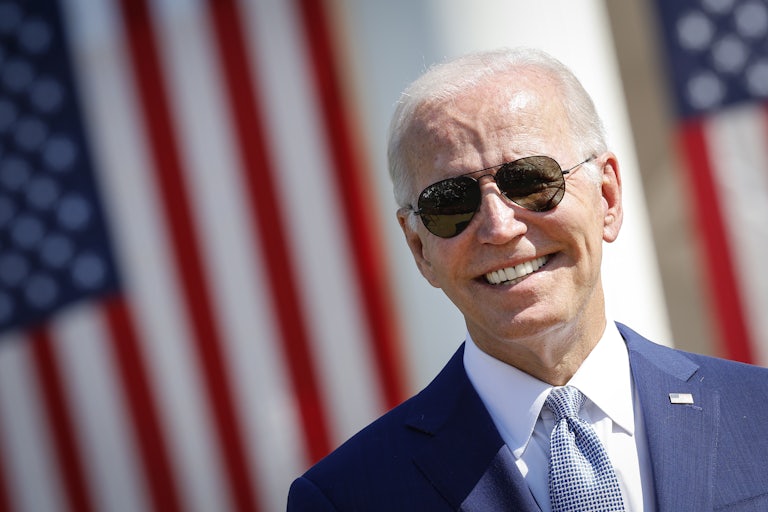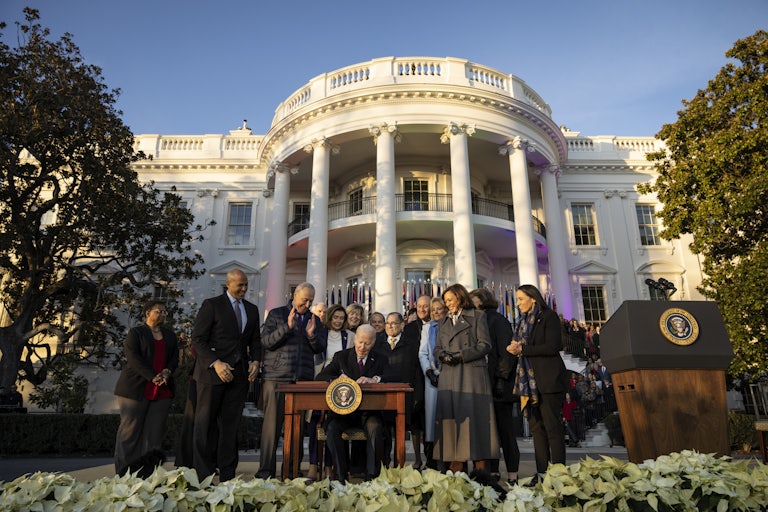The Deficit Hawks Are Circling the Biden Administration
It’s been a season of solid economic ideas from the White House. But some bad ideas are starting to bubble up from Washington’s sordid corners.
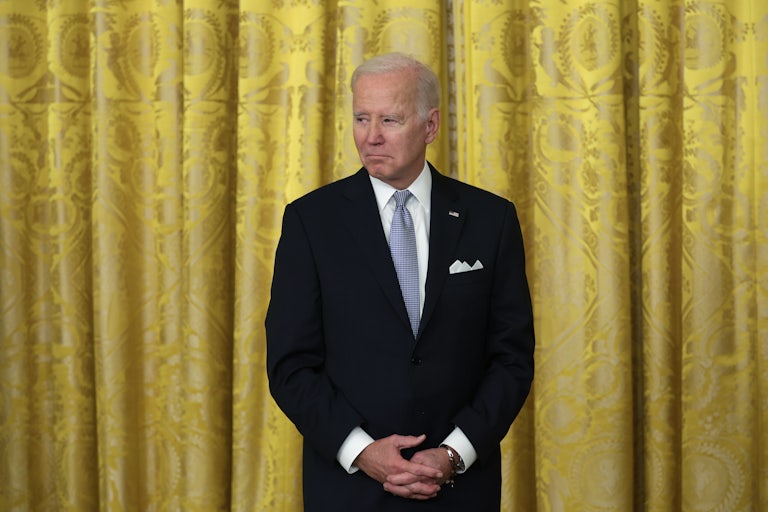
As the nation begins to ease into the presidential shadow primary, President Joe Biden seems to be on slightly firmer footing. His approval ratings are up, in conjunction with his recent State of the Union address, which was well received by the public. That his speech, a bold statement of intent for the next two years, was so widely admired should put wind in the president’s sails. As TNR’s editor Michael Tomasky noted, it was strewn with good notions on how to build an economy that works for working people—decent grist for a reelection campaign.
Good notions seem to be having a heyday. Democrats, having made a lot of noise about the high cost of insulin, got to watch Eli Lilly respond to the pressure and slash the price of this lifesaving medication. Democrats also recently bullied would-be Republican policy czar Rick Scott into backing down from the plan to sunset Social Security and Medicare that he’d so proudly stuffed into his policy manifesto. Now there’s even some bipartisan movement on a bill to help prevent rail disasters like the one that has endangered the town of East Palestine, Ohio. There’s still plenty of rancor and fury in Washington as the two parties battle for power. Still, it feels like we’ve fallen, for now, into a sweet spot where good ideas seem to have momentum.
Alas, in the midst of life, we are in death. For all this good news, the conditions remain ripe for bad ideas to flower. And there’s something eerily familiar about where we are right now: There’s a divided government, a Democratic president who hasn’t entirely lost his penchant for compromise, a looming debt ceiling fight, and a town full of deficit hawks forever circling their next kill. Biden’s Democratic predecessor, Barack Obama, faced more or less the same conditions during his tenure, and he wasn’t always successful. Biden has vowed not to repeat the same mistakes, but it’s hard not to feel a little bit spooked.
If you’re sensing the stirrings of an ill wind, you’re not alone. As Politico’s Adam Cancryn reported this week, Biden’s been contemplating taking on “a new economic persona,” and unfortunately, that persona is “deficit hawk.” According to this report, the president is looking to make “fiscal restraint” one of his administration’s watchwords, with deficit reduction an “increasingly central focus of his agenda.” As you might imagine, this isn’t being greeted with universal approval—some Democrats are worried that “it could undermine the case for future crisis aid—or backfire on Biden himself if the U.S. sinks into a recession that results in greater government spending and fewer tax receipts, driving the deficit higher.”
Meanwhile, trouble is brewing in another corner of Washington, D.C., where it is said that a bipartisan group of senators are looking at raising the retirement age to 70. Now it should be said that the word “bipartisan” is doing a lot of work in this telling: The proposal is the brainchild of a bunch of Republican senators and Maine’s often squirrelly independent, Angus King, who caucuses with Democrats. Raising the retirement age is a deficit-hack dream, but it would represent a substantial cut in benefits, hurt Black and working-class workers in particular, and redistribute a disproportionate share of the proceeds to high earners, who tend to live longer but don’t need the benefits as badly.
Naturally, there are better ideas at hand, chief among them being the raising or elimination of the income cap that currently allows the wealthiest among us to dodge paying their fair share into the Social Security fund. The status quo has resulted in a record share of earnings that aren’t subject to Social Security taxes; Tuesday, February 28, marked the last day this year that those earning a million dollars or more had to contribute to Social Security.
But there’s a big movement to finally change this, and Democrats have contributed two pieces of legislation that would soak the rich and save Social Security—the Social Security Expansion Act and Social Security 2100—which they, alongside Biden, can tout on the campaign trail. These policies are wildly popular. So much so that even Joe Manchin has rejected the idea of raising the retirement age and has backed lifting the taxable wage cap.
It says a lot about how much ground has been covered between the Obama administration and Biden’s tenure that you can count on Manchin’s support for this plan. It only underscores how this is the worst possible time to allow the deficit hawks and the austerity pimps a chance to return to prominence. They have no constituency beyond a few cable news green rooms and newspaper editorial boards. And they consistently back the wrong economic plays. Rather than fret over the government’s deficits, Biden would be well served to focus his attention on the household debts of ordinary Americans, go to war against the nickel-and-dimers of the GOP-backed Junk Fee Empire, take on the small town–destroying freight rail plutocrats, and fight to preserve these vital benefit programs that have fueled the Good Life in America.
This article first appeared in Power Mad, a weekly TNR newsletter authored by deputy editor Jason Linkins. Sign up here.

